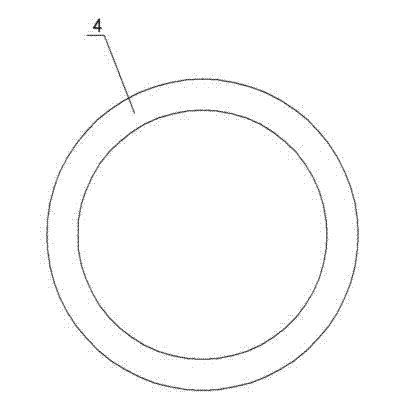Processing method for renewable waste plastic glass fiber building formwork
A technology of building formwork and processing method, which is applied to the on-site preparation of building components, construction, building structure, etc. The effect of mold work efficiency, smooth and beautiful surface, and many turnover times
- Summary
- Abstract
- Description
- Claims
- Application Information
AI Technical Summary
Problems solved by technology
Method used
Image
Examples
Embodiment Construction
[0033] The invention relates to a processing method of renewable waste plastic glass fiber building formwork, which is characterized in that: ①. Sorting materials: the recovered materials have complex components, firstly according to PP (polypropylene), PVC (polyvinyl chloride), PS ( Polystyrene) and GMT (glass fiber) are manually sorted for different materials, and then cleaned and dried to obtain the sorted materials;
[0034] ②, crushing and drying: use a crushing machine to crush each classified material separately, pass through a sieve with a fineness of 140-160 mesh after crushing, and then use a dehumidification dryer for drying to obtain powder for later use;
[0035] ③. Mixing ingredients: According to the weight ratio, take 65-75 parts of PP, 5-15 parts of PVC, 2-6 parts of PS, 5-15 parts of GMT and 4-8 parts of additives. Put the material into the dry powder mixer, mix and stir for 6-10 minutes, and make the mixture;
[0036] ④, granulation: use a single-screw extr...
PUM
 Login to View More
Login to View More Abstract
Description
Claims
Application Information
 Login to View More
Login to View More - R&D
- Intellectual Property
- Life Sciences
- Materials
- Tech Scout
- Unparalleled Data Quality
- Higher Quality Content
- 60% Fewer Hallucinations
Browse by: Latest US Patents, China's latest patents, Technical Efficacy Thesaurus, Application Domain, Technology Topic, Popular Technical Reports.
© 2025 PatSnap. All rights reserved.Legal|Privacy policy|Modern Slavery Act Transparency Statement|Sitemap|About US| Contact US: help@patsnap.com



